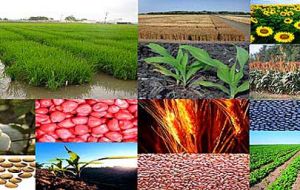MercoPress. South Atlantic News Agency
WTO members narrow differences in agriculture talks
 Ambassador Falconer has promise a new farm accord for end of January
Ambassador Falconer has promise a new farm accord for end of January The World Trade Organization's chief agriculture negotiator said that members have narrowed their differences and made “a lot of progress” in recent talks but more still needs to be done before an agreement is reached.
"We've made a lot of progress", Ambassador Crawford Falconer told reporters. "I've got greater clarity than I had before but by no means is everything resolved", he added. Falconer, who is also New Zealand's ambassador to the WTO, has called on the United States to reduce its agricultural subsidies to 13-16.4 billion dollars â€" a range on which Washington says it is prepared to negotiate. But the draft text has been criticized as unfair by several developing countries and Falconer has been forced to delay to an unspecified date a fresh revision of the accord due to the lack of consensus. He said he now hopes to present a revised draft by the end of January. Falconer last week issued 16 "working documents" on key agricultural issues such as quotas and tariffs for special and sensitive products, with the aim of provoking discussions among the WTO 151 members, trade sources said. "I'm not going to invent something by pretending artificially that people have a view on something when manifestly they don't, but I certainly intend to drag them right out of their comfort zones and I intend to capture whatever consensus is there," he said. Falconer added that the vast majority of members wanted more negotiations once the document has been produced, before moving to the next stage of the long-running Doha trade round -- "horizontal" negotiations. This is where diplomats and senior officials make trade-offs between agriculture and other areas like industry and services before presenting a draft deal to ministers. EU WTO ambassador agreed that negotiations had moved far enough for Falconer to produce a comprehensive text. "There are still areas where there's not a consensus, but he has enough elements to make a proposal that bridges the gaps," Eckard Guth told reporters. Some differences remain, such as the EU's demand for an extension of the system that copyrights and protects the use of place names from wines and spirits, such as champagne for French sparkling wine, to other foods such as Parma ham. On Friday members showed willingness to compromise when the EU said it was ready to discuss the abolition, sought by the Cairns Group of rich and poor farm exporters, of a WTO facility called the Special Safeguard used to shield products that countries say are sensitive, participants at the meeting said.




Top Comments
Disclaimer & comment rulesCommenting for this story is now closed.
If you have a Facebook account, become a fan and comment on our Facebook Page!